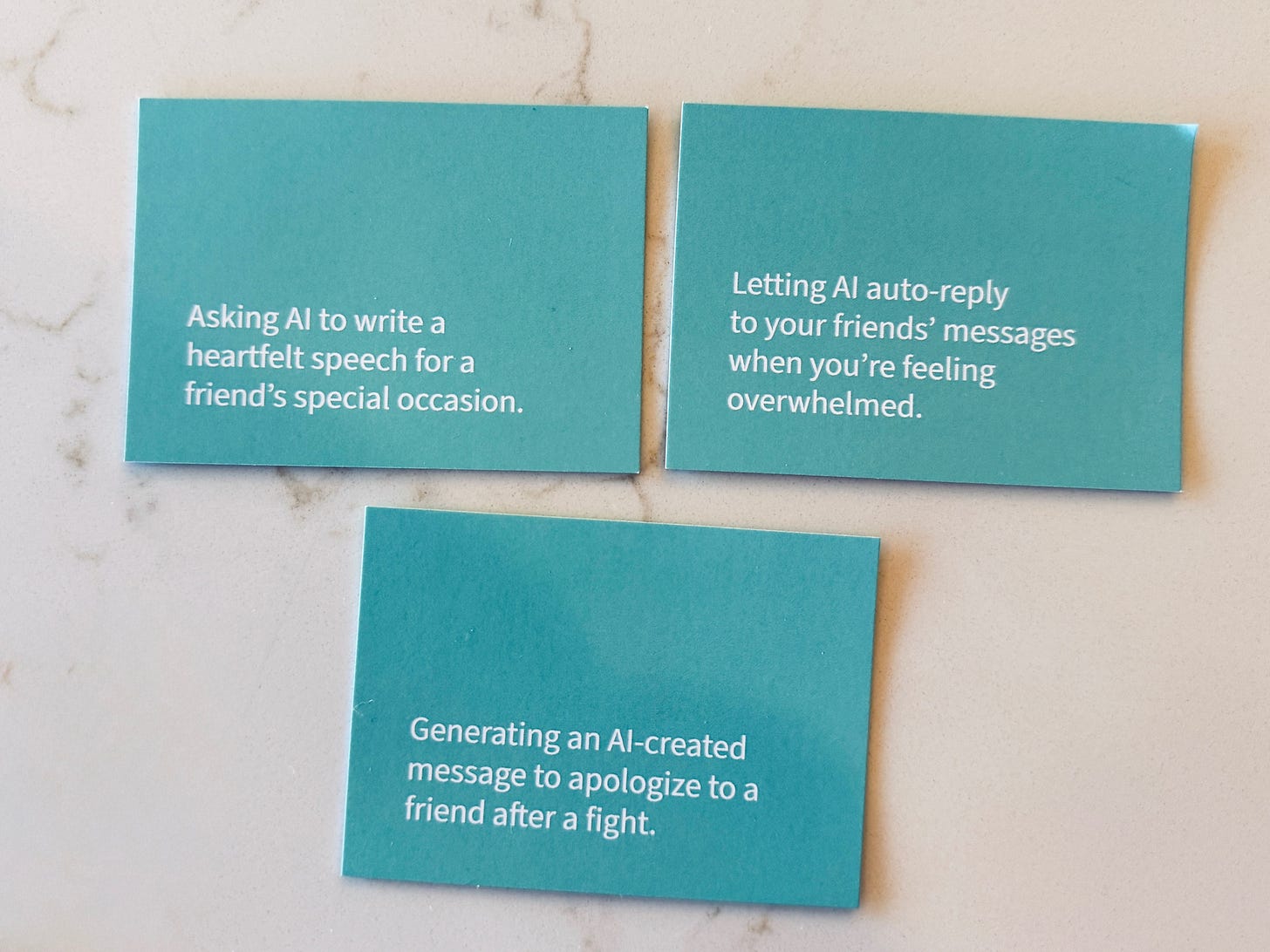It’s your birthday morning. Before getting out of bed, you scroll through a stream of texts and DMs — a few emojis, some “Happy Birthday!” sentiments. Sweet, if expected.
Then you get a note from an old friend:
“Hi you —
I woke up this morning thinking about you on your special day. I’m sitting here having my morning coffee, retracing our friendship since our early days of binge-watching The Office in our dorm room, and it’s hard to put into words the beauty, joy, support you’ve brought into my world since then.
There are few people who have seen me in so many chapters, but you keep showing up just in time, in all the right ways, for me. This summer, especially, when my mother got sick, and then again last month when Jaden and I hit a rough-patch. Having you as a safe (but honest) space to land makes all the difference. I hope you know that.
We don’t get to see each other nearly enough, but I hope you know how grateful I am that you were born.
Love you!
Wow. This one gets you in the feels: “I’m dying over here. Love you so much.”
A few days later, you catch your friend on the phone to tell her how much the message meant. She’s glad to hear it, and also admits: she used a new AI app. It scanned your text history and social media interactions and crafted the message for her. She just had to hit send.
How does that land?
Last month, we launched a card game called The AI Effect, where players sort different AI use cases by how likely they are to support — or erode — human connection. Hundreds of people across generations, geographies, and sectors played the game in its first two weeks.
Afterwards, we asked: Which cards sparked the most debate in your group?
The top three:
At first glance, these are pretty ordinary, everyday tasks.
Yet something about them got under people’s skin. So we followed up to understand why.
One player, a college freshman, summed it up perfectly:
For some, these tools offer ways to level up their expressions of care or deliver on the sentiment in ways they feel more confident about. For others, they feel like a shortcut that undermines the very meaning of the gesture.
This tension cuts across both giver and recipient.
Back to that birthday message: Did your friend miss out on the meaningful act of pausing to reflect on your friendship because she let the app do it for her? Or did the AI actually surface forgotten memories that let her soak up a few moments of nostalgia and send a note that otherwise would simply not have happened?
And what about you — the recipient?
Does the message lose meaning when you find out it wasn’t handcrafted? Or does the content still move you, regardless of how it was made?
If our card game is any indication, the answer is: it depends.
It depends on who you are. It depends on your relationship. It depends on the context, whether you know AI was involved, and a million other subtleties.
But what’s clear is that we’re entering a world where the beauty, polish, thoughtfulness, and personalization of a gesture may no longer correlate with the effort behind it.
So what happens to our emotional radar? How will we sense and communicate sincerity? How do we preserve — or redefine — thoughtfulness in an AI-assisted world?
The young people who played this game were quick to point out that this tension — between intention and interpretation — isn’t entirely new. People have always had different expectations of what makes a gesture feel meaningful. Those mismatches can be landmines in families, friendships, and romantic relationships.
But they can also be openings. Opportunities for friction, yes — but also for negotiation. For saying the thing out loud: Here’s how I want to be loved. Here’s how I’m trying to love you. For developing the emotional fluency to ask, listen, and recalibrate.
The debate that arose around these three cards makes it clear: the allure of using AI to enhance or automate these thoughtful moments is real. So is the risk. Not just that a gesture might ring hollow — but that, over time, we might lose the habit of showing up at all. That we’ll forget: love, friendship, and care aren’t just feelings. They’re practices. And they’re worth working for.
Two experiments for the week:
Send a “just thinking of you” note to two people — maybe a friend, colleague, or family member you haven’t talked to in a while. For one of them, use AI to help you write it. For the other, go old-school: write it yourself. After you’ve sent both, reflect. Did the experiences feel different? If you’re feeling bold, tell one of the recipients that AI helped with your note. Ask them if it changes how they feel about it.
Notice the moments this week where time and effort were the whole point? What activities might lose meaning if automated or heavily assisted?
Want to get on the waitlist for the next batch of our card game “The AI Effect?” Sign up here.











